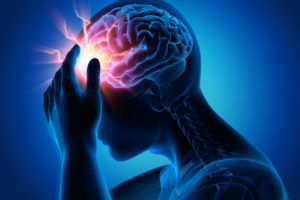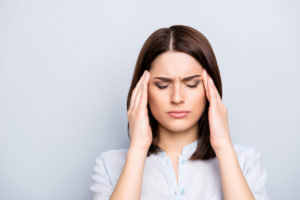Migraine is an all-too-common source of misery among Americans: nearly 1 in 4 households in the United States include someone who has this debilitating neurological condition.
If you’re one of those people, you want to know what you can do to banish migraine for good. While there is currently no cure for migraine, the good news is that there are things you can do to stop it in its tracks. Below are a few tips to help you avoid migraine attacks.
Tip #1 Mind What You Eat and Drink
The following are some of the foods and drinks that are known to trigger migraines. It pays to steer clear of them:
- Alcohol, specifically red wine
- Chocolates
- Coffee
- Pickled and fermented foods
- Processed foods, especially those that contain monosodium glutamate (MSG)
- Soy and cultured dairy products
You can also take note of what time you ate the particular food and how much of that food you consumed.
In addition, don’t skip a meal, as fasting can also trigger migraine. It also helps to eat at about the same time every day.
Tip #2 Have a Good Night Sleep
Having too little or too much sleep can leave you susceptible to migraine attacks, according to the American Migraine Foundation. So, try to have just the right amount of sleep: seven to eight hours a day.
Here are some ways you can improve your sleep hygiene:
- Being consistent – going to bed at the same time each night
- Not sleeping for longer than 20 to 30 minutes during the daytime
- Avoiding intense exercise, heavy meals, nicotine, alcohol, and caffeine at night
- Shunning the blue light and noise
- Not trying too hard to sleep – Instead, try to read or do a quiet activity until your feel drowsy.
- Checking your medications and other stimulants that can interfere with your sleep
Tip #3 Know How to Tame Stress
Stress is a common migraine trigger, and migraine episodes can occur both during and after a stressful situation.
Avoiding stressful situations is almost impossible, but there are things you can do to keep stress under control. Below are some of them:
- Practicing relaxation techniques, such as yoga and meditation
- Trying not to squeeze activities into your day – Instead, leave something out and divide large tasks into small, manageable chunks.
- Taking a break, if you feel overwhelmed
- Keeping a positive outlook on life – helps you take everyday challenges in stride.
Tip #4 Incorporate Exercise into Your Daily Routine
Exercise helps migraine sufferers by:
- Promoting better sleep
- Reducing stress and anxiety as well as improving mood by releasing endorphins – Exercise triggers the release of feel-good hormones and natural painkillers, and lowers cortisol levels (stress hormones).
Migraine Treatment in Wellington, FL
At Advanced Medical Clinic, our team is led by a board-certified internal medicine provider and a board-certified family nurse practitioner who have made a name for themselves for the high-quality care they provide to people living with migraine and many other conditions, helping them conquer pain and quality-of-life issues.
To arrange a consultation with one of our providers, contact our office at (561) 434-1935. Alternatively, you may request an appointment right here on our website.











